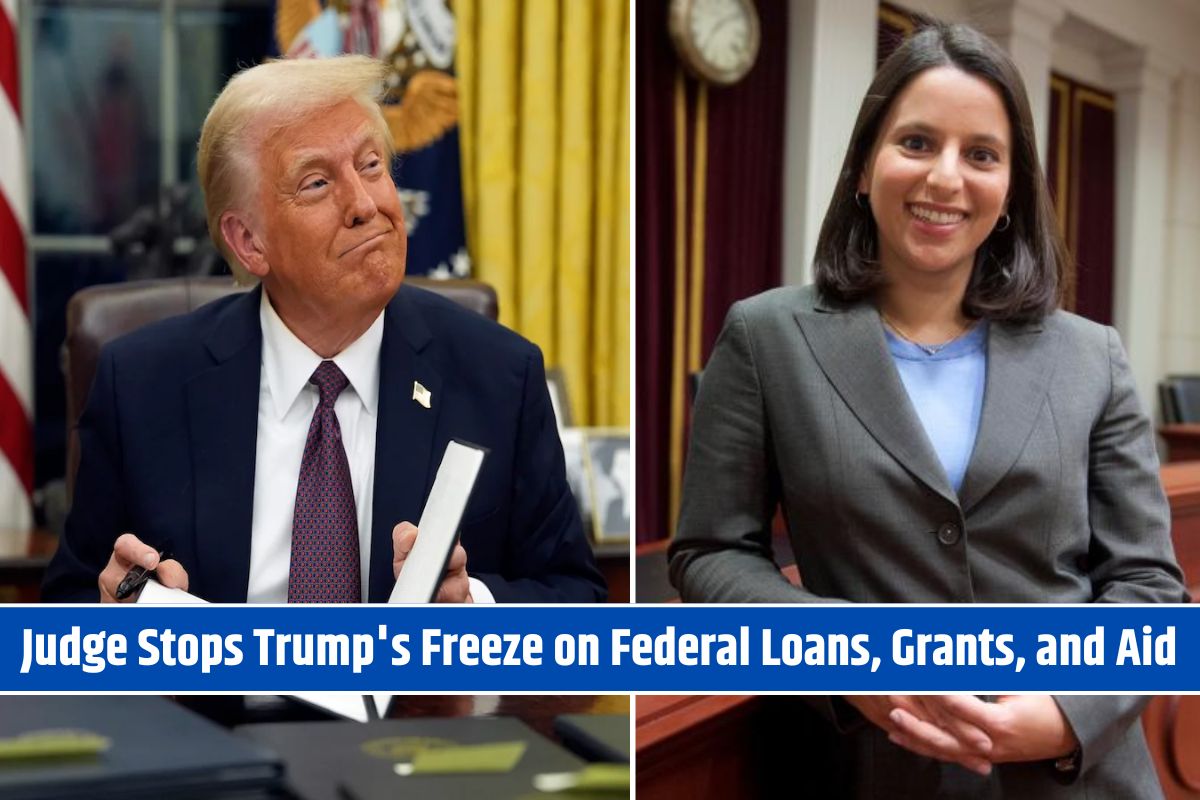A federal judge has issued a temporary stay against a White House directive that aimed to freeze federal assistance funding, creating widespread confusion among organizations and state governments.
The freeze, which was unexpectedly revealed in a late-night memo, threatened to disrupt aid programs for nonprofits, universities, small businesses, and local governments. The court’s decision provides temporary relief while legal challenges continue.
Judge Halts White House Spending Freeze
On Tuesday, Judge Loren L. AliKhan of the U.S. District Court for the District of Columbia put a temporary hold on the Trump administration’s directive to freeze federal aid programs. The decision follows legal challenges from nonprofits and state officials, who argued that the funding freeze could have devastating consequences.
Key Points of the Court’s Decision:
- The spending freeze is temporarily blocked until at least Monday at 5 p.m., allowing time for further litigation.
- The stay applies to existing federally funded programs, but new funding allocations are not affected.
- Organizations across the country, including Head Start and Meals on Wheels, expressed serious concerns about how the freeze would impact their services.
What Did the White House Order Say?
The Office of Management and Budget (OMB) issued a memo late Monday night instructing federal agencies to pause federal assistance payments by Tuesday at 5 p.m.
Programs Potentially Affected:
- Nonprofits and universities
- Small business loan programs
- State and local government grants
- Social services, including food assistance and housing aid
The memo emphasized a review of federal financial assistance programs to ensure they align with President Trump’s policies. Specifically, it called for an assessment of funds linked to “DEI, woke gender ideology, and the Green New Deal.”
Impact on Social Programs
Many organizations rely on federal funding to maintain essential services. The freeze created immediate uncertainty for programs supporting low-income families, seniors, and vulnerable communities.
Responses from Major Social Programs:
- Head Start warned that nearly 800,000 low-income children and families could be affected.
- Meals on Wheels feared millions of seniors would lose access to food assistance.
- The National Council of Nonprofits described the freeze as a “five-alarm fire” that could halt medical research, shut down shelters, and disrupt crisis hotlines.
While the White House insisted the freeze would not impact Medicare or Social Security, Medicaid services experienced technical disruptions, raising concerns about unintended consequences.
Democrats and Legal Challenges Against the Freeze
Democrats reacted swiftly and aggressively against the funding freeze.
Key Reactions from Lawmakers:
- Senate Minority Leader Chuck Schumer called the decision “lawless, dangerous, and unconstitutional,” claiming it could cut off billions of dollars in aid.
- Sen. Patty Murray urged Republicans to block the confirmation of Trump’s OMB nominee, Russ Vought, until the freeze was lifted.
- Minnesota Gov. Tim Walz described the move as “unprecedented and illegal.”
A coalition of 23 Democratic state attorneys general announced they would file a lawsuit challenging the freeze, arguing that it violates the Impoundment Control Act of 1974, which limits the president’s ability to withhold funds approved by Congress.
What Happens Next?
The federal judge’s ruling provides temporary relief, but legal battles are expected to continue.
Possible Outcomes:
- The Justice Department could appeal to the Supreme Court if lower courts rule against the Trump administration.
- Congress may seek legislative action to override the funding freeze.
- The White House may revise its directive, clarifying which programs are exempt.
The court’s next decision on Monday will determine whether the freeze remains blocked or if the Trump administration can move forward with its funding review.
The White House’s funding freeze created immediate uncertainty for millions of Americans relying on federal aid. While the administration argues the freeze is necessary to align spending with Trump’s policy priorities, critics say it jeopardizes essential services and violates federal law.
With legal challenges mounting and Congress applying pressure, the coming weeks will be crucial in determining whether the Trump administration’s freeze will hold—or if it will be permanently struck down.
